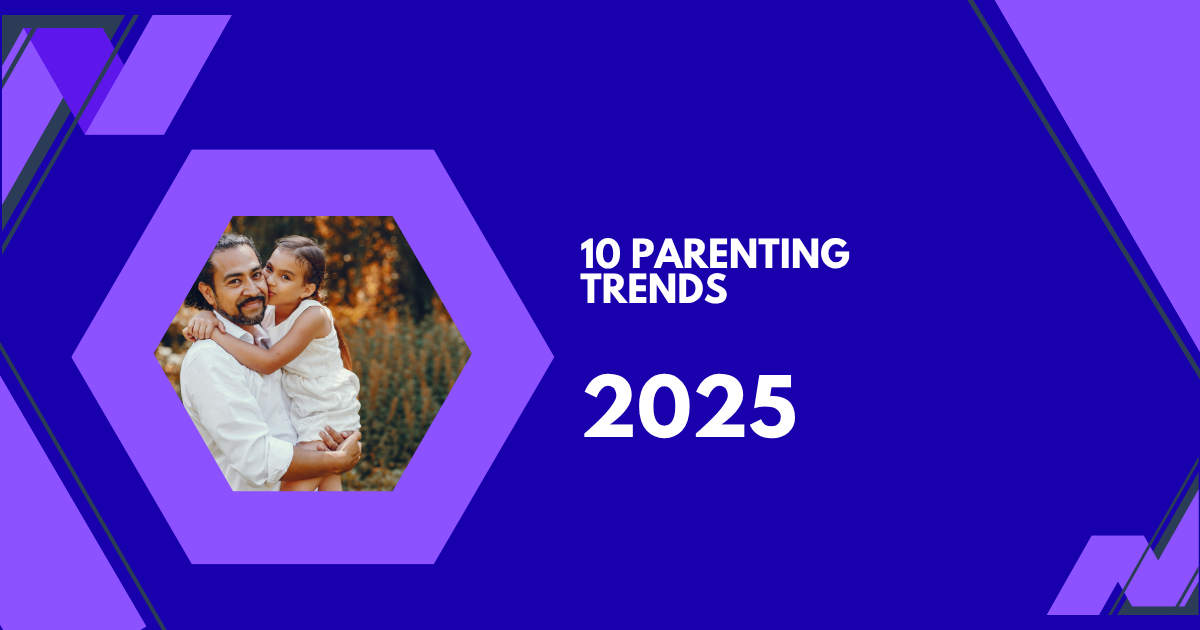Parenting is evolving faster than ever. With advances in technology, shifts in work culture, global health awareness, and changing societal norms, parents in 2025 are rewriting the traditional rules of raising children.
From digital parenting tools to eco-conscious lifestyles and mental health awareness, the trends reflect a deeper focus on intentional, informed, and adaptive parenting. In this article, we explore the top parenting trends in 2025 that are shaping the way families nurture, educate, and support the next generation.
Before that, please enter the details to get a free parenting guide.
1. Digital Parenting and Smart Apps
The use of technology in parenting has surged dramatically in 2025. Digital parenting apps now help parents track their child’s health, growth, sleep, vaccination schedules, academic progress, and even behavioral patterns.
Example
- KidsCur App – Tracks child health, milestones, and connects with pediatricians.
Key Benefits:
- Centralized child information
- Real-time health updates
- Improved doctor-parent communication
In 2025, parents value data-driven decisions, and these apps are empowering them with actionable insights.
2. Emphasis on Mental Health and Emotional Intelligence
With rising awareness about mental well-being, parents are focusing more on:
- Emotional literacy
- Open communication
- Stress management
- Positive discipline
Schools and families are incorporating mindfulness exercises, journaling, and therapy-based games to help children express emotions and develop resilience.
Trends:
- Parenting coaches offering emotional support
- Early childhood mental health screenings
- Use of emotion-labeling books and tools
Parents are realizing that emotional intelligence (EQ) is as crucial as IQ in building confident and empathetic kids.
3. Flexible and Remote Parenting
The post-pandemic world has normalized hybrid work and remote setups. Parents in 2025 are:
- Choosing careers that offer flexibility
- Creating home-schooling pods
- Prioritizing work-life balance over high-paying roles
This trend has led to:
- Increased parental involvement
- More time for quality interactions
- Reduced dependence on formal childcare
Fathers are especially becoming more involved in day-to-day parenting, redefining traditional roles at home.
4. Eco-Conscious and Sustainable Parenting
Today’s parents are deeply committed to raising environmentally conscious kids. They are making mindful choices such as:
- Cloth diapers over disposables
- Wooden toys instead of plastic
- Organic baby foods
- Recycling-based school projects
Key Trends:
- Eco-friendly birthday parties
- Thrifted or shared clothing
- Teaching kids to care for the planet from a young age
2025, parents believe that sustainability begins at home.
5. Gender-Neutral Parenting
Parenting in 2025 is more inclusive and progressive. Many parents are raising their children in gender-neutral environments to allow:
- Freedom of expression
- Diverse interest exploration
- Elimination of gender stereotypes
What does this look like?
- Gender-neutral toys and books
- Letting kids choose clothes without bias
- Encouraging all children to engage in sports, arts, and caregiving roles
This trend supports identity development based on interests and values rather than gender norms.
6. Minimalist Parenting Style
Minimalist parenting is about doing less but better. It’s not about depriving kids but about removing excess to focus on what truly matters.
Principles of Minimalist Parenting:
- Decluttered toy collections
- Intentional screen time
- Simplified schedules
- Fewer extracurriculars with deeper engagement
In 2025, families are ditching the “busy = better” mindset and instead fostering a calm, connected home environment.
7. Holistic Health and Nutrition
Health in 2025 is not just about vaccinations and check-ups. Parents are taking a whole-child wellness approach, focusing on:
- Gut health
- Herbal and traditional remedies
- Yoga and exercise
- Sleep hygiene
- Sugar-free diets
Home-cooked meals, baby-led weaning, and organic meal plans are gaining popularity. Parents are more informed and choose foods that are nutritionally dense, minimally processed, and sustainable.
Apps like HealthyfyMe Kids and MyPlate for Kids help track meals, hydration, and physical activity.
8. STEM and AI Learning from an Early Age
In a world increasingly driven by technology, 2025 parents are introducing their kids to:
- Coding apps like ScratchJr
- Robotics kits
- AI-powered educational games
- Science experiment boxes
Why This Matters?
- Builds logical thinking
- Prepares kids for future careers
- Enhances problem-solving skills
Parents are also investing in online courses, virtual labs, and digital tutors to supplement school learning.
9. Rise of Digital Communities and Micro-Influencers
Traditional parenting advice has shifted online. Parents now follow:
- Parenting influencers on Instagram and YouTube
- Facebook groups for parenting hacks
- WhatsApp communities for school updates and playdates
Micro-influencers (with niche content) are more trusted than celebrity figures due to:
- Real experiences
- Culturally relevant tips
- Peer-like relatability
This digital village supports modern parents in making everyday decisions with collective wisdom.
10. Parenting with AI and Voice Assistants
Voice assistants like Alexa, Google Home, and Siri are now part of parenting routines.
Use Cases:
- Setting reminders for vaccines
- Playing nursery rhymes and bedtime stories
- Answering kids’ curious questions
- Scheduling doctors’ appointments
In addition, AI-powered baby monitors now offer:
- Real-time temperature updates
- Cry detection
- Sleep pattern analysis
AI tools are becoming digital co-parents, offering convenience and peace of mind.
Conclusion
Parenting in 2025 is an exciting blend of technology, mindfulness, flexibility, and purpose. Today’s parents are not just caregivers—they’re educators, mental health advocates, eco-warriors, and lifelong learners.
As parenting continues to evolve, one thing remains constant: the deep-rooted love and commitment to raising happy, healthy, and responsible children. By staying informed and embracing change, parents can create a nurturing environment where both kids and caregivers grow together.
KidsCur is a parenting app that helps make parenting effective. Download the app now to make your parenting easier!
FAQs
Q1. What is the biggest parenting trend in 2025?
The integration of digital parenting apps and tools tops the list, enabling data-driven, convenient, and personalized parenting.
Q2. How can I practice gender-neutral parenting?
Avoid assigning roles, toys, or clothes based on gender. Instead, let children explore their interests freely and support their choices without bias.
Q3. Why is emotional intelligence so important for kids?
Children with strong EQ are better at handling stress, communicating feelings, building relationships, and adapting to new environments.


